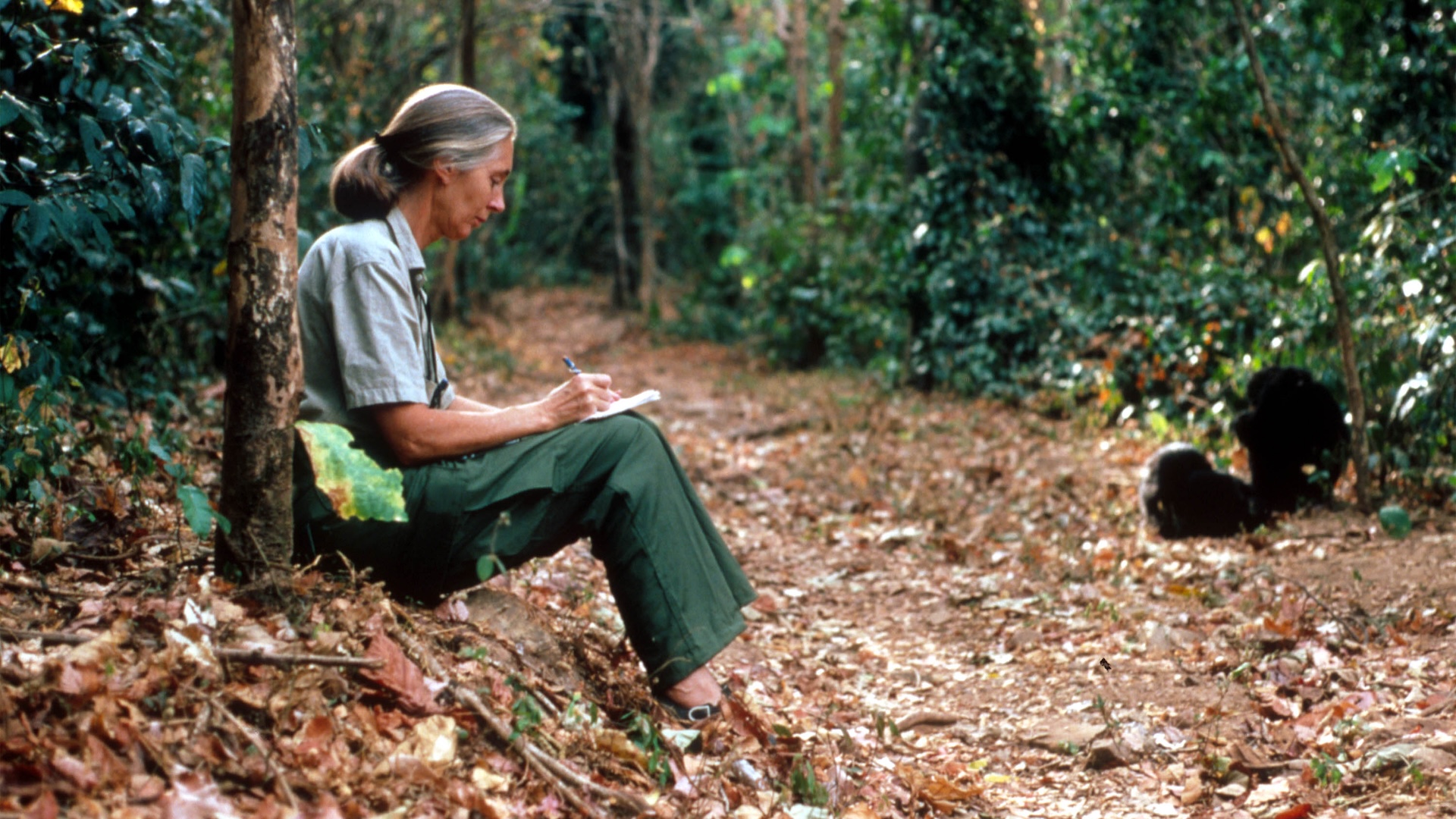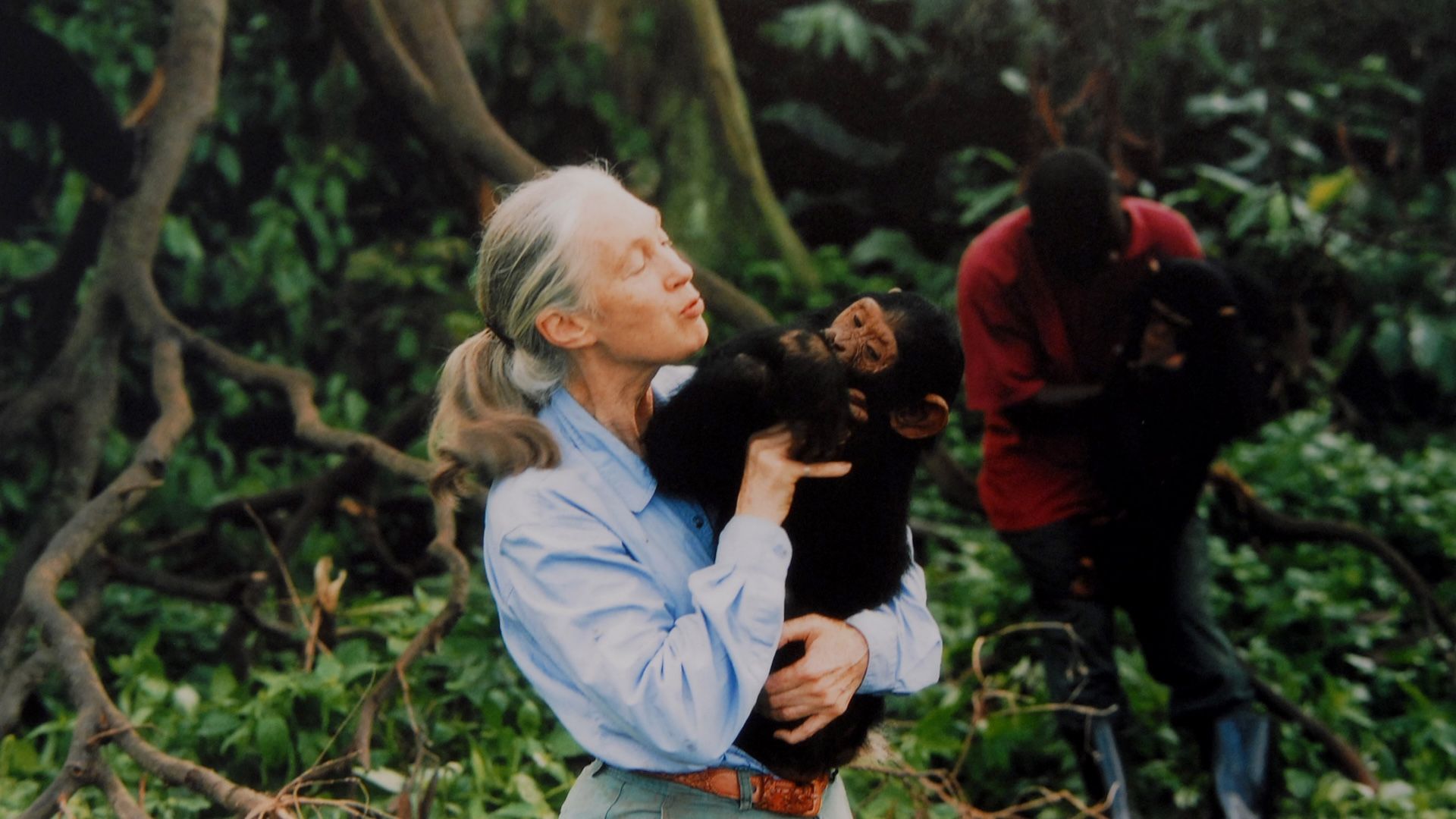Jane Goodall, the world’s foremost expert on chimpanzees, has died at the age of 91, the Jane Goodall Institute (JGI) confirmed in a statement on Wednesday (Oct. 1). Goodall died of natural causes in Los Angeles, California, while on a speaking tour.
Goodall “was a remarkable example of courage and conviction, working tirelessly throughout her life to raise awareness about threats to wildlife, promote conservation, and inspire a more harmonious, sustainable relationship between people, animals and the natural world,” the JGI statement reads.
In 1966, Goodall took a break from working at Gombe and completed a doctorate at the University of Cambridge. Her doctoral thesis detailed her years’ worth of study at Gombe. One key observation that Goodall made at the national park was that chimpanzees were capable of making and using tools — she famously saw one of the apes strip a stick to “fish” for termites in a mound.
The discovery of chimpanzee tool-making counteracted the prevailing assumption at the time that only humans were intelligent enough to make tools. The revelation inspired Leakey to declare, “We must now redefine tool, redefine man, or accept chimpanzees as human!”
Goodall was the first person to document that chimps hunt and eat meat, revealing they are omnivores rather than the vegetarians scientists thought they were. She also saw chimps embrace one another in mourning after the death of a troop member and develop a kind of primitive language system.
But Goodall also documented disturbing behaviors never seen before, such as dominant females killing the young of other females.
“We found that chimpanzees can be brutal — that they, like us, had a darker side to their nature,” Goodall wrote in her book “Reason for Hope: A Spiritual Journey” (Grand Central Publishing, 2000).
In the 1970s, Goodall became increasingly concerned about conservation efforts at Gombe and throughout Africa, and in 1977, she founded the non-profit Jane Goodall Institute. JGI maintains a presence at the Gombe Stream Research Centre — now the longest ongoing chimpanzee study in the world — and also helps teach young people around the world about environmental conservation.

Until her death, Goodall traveled the world nearly 300 days a year, speaking about wildlife conservation and environmental crises, according to the JGI statement. Her public lectures often began with “Dr. Jane” pant-hooting a chimpanzee greeting to her audience, and she would emphasize the collective power of individual actions for the benefit of the environment. In a 2002 essay published in Time Magazine, Goodall wrote that “the greatest danger to our future is apathy.”
In a statement, Audrey Azoulay, director-general of UNESCO, said that “Dr. Jane Goodall was able to convey the lessons of her research to everyone, especially young people. She changed the way we see Great Apes. Her chimpanzee greetings at UNESCO last year – she who so strongly supported our work for the biosphere — will echo for years to come.”
Goodall is survived by her sister, Judy Waters, her son, Hugo Eric Louis van Lawick, who was nicknamed “Grub” as a child, and three grandchildren. Grub spent his early years at Gombe, and Goodall’s observations of chimpanzees helped her understand how to raise her son, she told People Magazine in 1977.
“The chimpanzees have an extremely close bond between mother and child,” she said, “and I raised Grub this way.”
During her 60 years of working with primates and spreading a message of environmental conservation, Goodall inspired other women to become scientists and received numerous awards, including Commander of the Order of the British Empire (1995), United Nations Messenger of Peace (2002), French Legion of Honour (2006), and the Presidential Medal of Freedom, which she was awarded in January 2025 by U.S. President Joe Biden.
